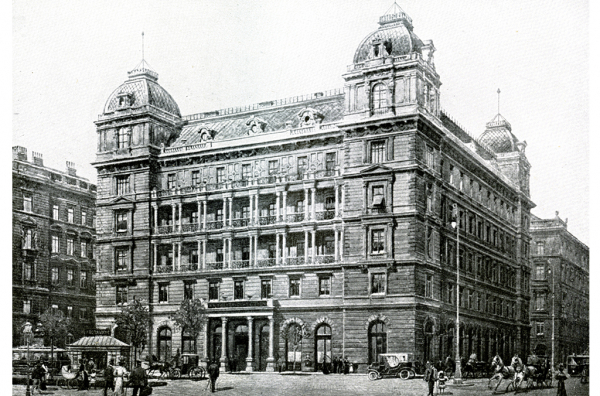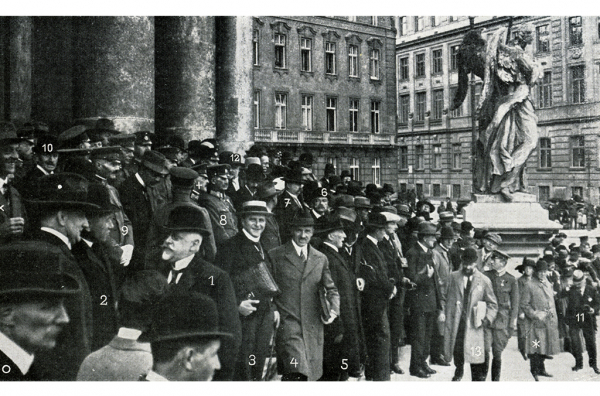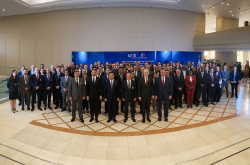The idea is born
While INTERPOL was officially created in 1923, the idea was born at the first International Criminal Police Congress held in Monaco in April 1914. At the invitation of Prince Albert I of Monaco, lawyers and police officials from 24 countries discussed cooperation on solving crimes, identification techniques and extradition.
The meeting was highly successful, but plans had to be put on hold due to the outbreak of the First World War.
1923 – the foundations are laid
The idea of an international police body was revived by Dr Johannes Schober, President of the Vienna Police. He convened the second International Criminal Police Congress in Vienna, Austria in 1923. It was attended by representatives from 20 countries.

The participating countries were:
- Austria
- Czechoslovakia
- Denmark
- Egypt
- Fiume
- France
- Germany
- Greece
- Hungary
- Italy
- Japan
- Latvia
- Netherlands
- Poland
- Romania
- Sweden
- Switzerland
- Turkey
- United States of America
- Yugoslavia

On 7 September 1923, the meeting agreed to establish the International Criminal Police Commission (ICPC).
The overall aim of the ICPC was to provide mutual assistance between police in different countries. Its structure and aims were documented in a series of Resolutions (available to download in the Related Documents below, in German and French).
Among the main themes were:
- Direct police contact;
- Cooperation on arrests and extradition;
- Common languages;
- Creation of offices for counterfeit currency, cheques and passports;
- Fingerprinting techniques and records.
These principles are still relevant today and continue to feature among our activities. Read more about INTERPOL then and now.

Austria offered to house and finance the headquarters, which were established in Vienna. Johannes Schober became President of the Executive Committee, with Dr Oskar Dressler, a lawyer and chief of the Austrian Federal Police, appointed as Secretary.

1956 – a modernized INTERPOL
In 1956, The ICPC became the International Criminal Police Organization (ICPO-INTERPOL) with the adoption of a modernized constitution. The Organization became autonomous by collecting dues from member countries and relying on financial investments.
Read more about our 100-year history on the key dates page.
A number of historical books and other scholarly publications which include in-depth details about the origins of the International Criminal Police Commission, the Nazi takeover and the rebuilding of INTERPOL as the International Criminal Police Organization are available.
The following is a non-exhaustive list of publications and is not meant as an endorsement or that the content necessarily represents the views of the Organization:
- Policing World Society by Mathieu Deflem (2002)
- Verfolgung durch Verwaltung: Internationales Verbrechen und internationale Polizeikooperation Jens Jäger (2006)
- Interpol, Fenton S. Bresler (1992)
- Interpol: Issues in World Crime and International Criminal Justice Michael Fooner (1989)
Related documents
Related news







